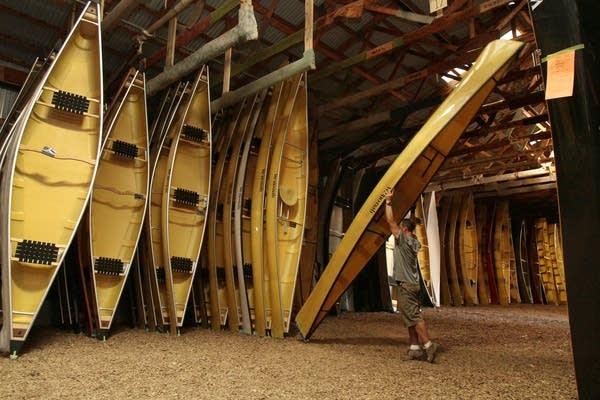In Winona, a surprising cluster of high-tech firms

Zak Ambuhl moved canoes around in the storage area of Wenonah Canoe to prepare them for shipping in Winona, July 21, 2015. Winona, a city of 28,000 residents, is home to Minnesota's largest cluster of composites manufacturing.
Alex Kolyer | For MPR News
Go Deeper.
Create an account or log in to save stories.
Like this?
Thanks for liking this story! We have added it to a list of your favorite stories.


